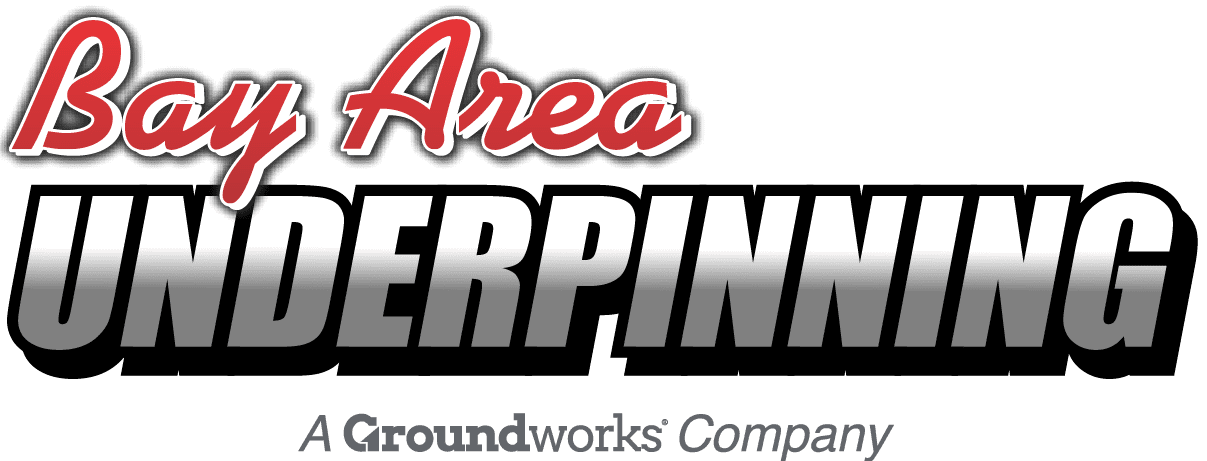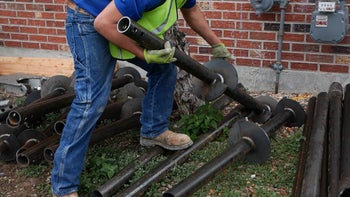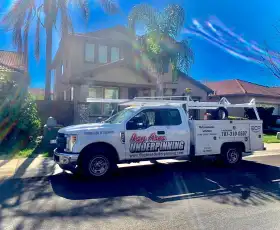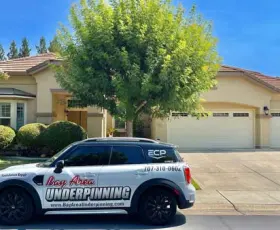Home Foundation Inspection: What To Expect
Table of Contents
1. What Is A Foundation Exactly?
2. What Is A Foundation Inspection?
3. How Is A Foundation Inspection Done?
4. Why You Might Want A Home Foundation Inspection
5. How long does a home foundation inspection take?
6. How Much Does A Home Foundation Inspection Cost?
7. Signs Of Foundation Damage
Thinking about getting a home foundation inspection? If so, good for you. Your home’s foundation is its most important feature. Everything literally rests on it. Therefore, foundation problems should be taken seriously because foundation repairs can be pretty expensive, running into the tens of thousands of dollars sometimes – depending on the repairs. Unfortunately, in most cases homeowner’s insurance won’t cover the repair. Most policies don’t cover foundation repairs for problems caused by settlement or normal aging.
You can avoid foundation problems by monitoring your home’s foundation for issues and by getting a periodic foundation inspection. A foundation inspection – performed either by a foundation repair professional or a structural engineer – is an easy way to monitor what’s happening with your home’s foundation.
Of course, there are other reasons you might want a foundation inspection, including when,
- You’ve already spotted a possible foundation issue
- You want to buy a home
- You want to sell your home
We’ll talk more about these reasons later on. We’re also going to cover what’s included in a foundation inspection, how they’re done, cost, and more.
What Is A Foundation Exactly?
A foundation is what your home rests on. It supports the structure and keeps groundwater out. There are three main types of foundations: slab, crawl space, and basement.
What Is A Foundation Inspection?
A foundation inspection is when a foundation repair contractor or a structural engineer checks to see if your home is structurally sound and safe to live in. They will do a thorough check for any signs of foundation trouble. Because they know what to look for, they’ll be able to spot issues the homeowner will most likely overlook.
For information about foundation repair methods see, Foundation Stabilization: Costs, Methods, Soil Types, and More.
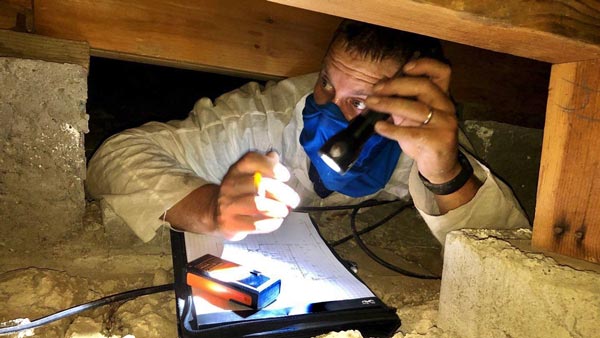
How Is A Foundation Inspection Done?
Here at Bay Area Underpinning, most requests for a foundation inspection are made by homeowners who suspect they might have a problem. The foundation inspection is divided into three parts:
- We ask the homeowner to show us their areas of concern. We want to know why they called us.
- We then visually inspect the entire house (inside and out), looking for any signs the foundation has moved. We also perform a floor level survey to see if there are any signs of settlement. If there is foundation settlement, the floor will not be level.
- Finally, we write up a report that details any problems and their recommended repair solutions. It will also include a repair estimate. Depending on the problem(s), the report/proposal might contain information about piers, concrete removal/replacement, screw jacks, carbon fiber reinforcement traps, etc. The report will also include information about permits and whether a structural engineer will need to be involved.
Why You Might Want A Home Foundation Inspection
Reasons you might want a home foundation inspection include,
- You’ve spotted a problem – Maybe you’ve noticed a suspicious crack, an uneven floor, or doors that aren’t opening and closing correctly.
- You want to buy a home – Don’t sign on the dotted line before you get a foundation inspection. If the inspection uncovers a problem, you can figure the repair cost into your offer.
- You want to sell your home – Since you can get into legal trouble for not disclosing any foundation issues when selling a home, we recommend a foundation inspection before putting your home on the market.
- You want to make sure your home stays structurally sound – Foundation issues will turn into big problems that are expensive to fix if they’re not repaired promptly. Therefore, it doesn’t hurt to have your home’s foundation inspected periodically for peace of mind.
- You want to add a floor – If you’re planning a major addition to your home, you’ll need to know if the foundation will be able to support it.
How long does a home foundation inspection take?
The Bay Area Underpinning inspection process takes around 1-1 1/2 hours, and depending on the type of foundation, it may differ somewhat from house to house. For example, if we’re inspecting a slab foundation, we’ll want to know if it’s post-tensioned, a particular type of slab foundation that contains reinforced steel cables. If it’s a basement foundation, which are rare in the state of California, we would check the foundation walls for bowing.
How Much Does A Home Foundation Inspection Cost?
At Bay Area Underpinning, we offer homeowners a free inspection and repair estimate. (Most foundation repair contractors offer a free inspection and estimate.) However, if the inspection is for a real estate transaction, we charge a $350 fee.
Some homeowners prefer to have a structural engineer inspect the foundation because they think an unscrupulous repair contractor might recommend one or more unnecessary repairs. We get that. Just know that structural engineers always charge for a foundation inspection, sometimes quite a bit.
Signs Of Foundation Damage
Since minor foundation issues will only get worse over time, every homeowner should know how to spot the signs of a possible foundation problem early:
- Windows and/or doors that don’t open and close properly – If this is happening with only one window or door, it’s probably not a foundation issue. However, if more than one window or door has problems, you should contact a foundation repair contractor and ask for an inspection.
- Uneven floors
- Ceilings and/or floors that are no longer in contact with the wall – Even slight separations could indicate a problem.
- Floor cracks, especially those that run wall to wall – Cracks limited to one or two tiles were probably caused when something heavy fell on the floor.
- Cracked walls – Vertical cracks are usually caused during the concrete curing process, and while they can allow water to get in, they’re not a sign of structural damage. Horizontal cracks, on the other hand, are indeed a sign of foundation trouble.
- Bowed walls – Sometimes, a bowed wall will also have one or more cracks in it.
- Torn wallpaper – This might be a sign the wall behind the wallpaper is cracked or bowed
- Wall rotation – This happens when the soil around the foundation is oversaturated with water. The outside foundation wall sinks into the ground while the inside foundation wall – which is sitting on dry soil – lifts. This causes the wall to rotate.
- Diagonal cracks that start at the corners of windows and/or doors and go up toward the ceiling.
- Moldings that have separated from the wall and/or ceiling – Even slight separations could indicate a problem.
- Stair step cracks in brickwork
- Chimney and/or porches that are leaning or have separated from the rest of the house
For more information see Foundation Settlement.
If you’re worried about the structural integrity of your home, a foundation inspection will put your mind at ease. The good news is that most foundation issues are not emergencies, and your home is unlikely to collapse. Apart from catastrophic circumstances such as an earthquake or a sinkhole, foundation problems take years to develop. Fortunately, foundation issues caught early are less expensive to repair. So, if you think there might be a problem, contact a professional right away for a foundation inspection.
Contact us today if you’re in our service area in Northern California and want to schedule a foundation inspection.
More Resources
Publish Date:
Last Modified Date:
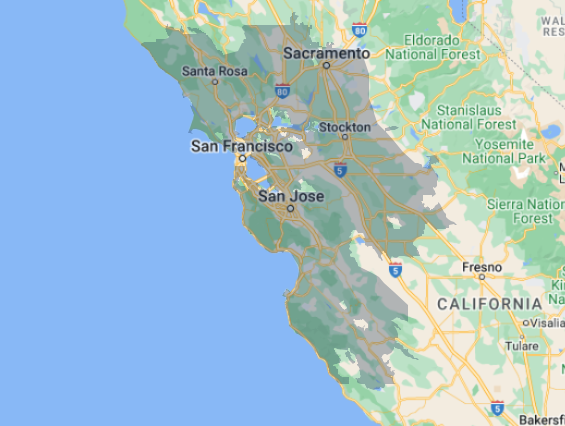
Our Locations
2333 Courage Dr. Suite C
Fairfield, CA 94533
1161 N Fair Oaks Ave
Sunnyvale, CA 94089
